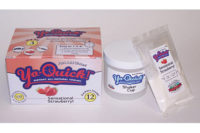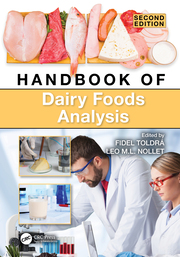Live long and prosper with probiotics
Prebiotic and probiotic ingredients have the potential to improve quality and length of life.

Someday, science may show that particular prebiotic, probiotic, and synbiotic ingredients help prevent certain age-related disorders and lengthen lives. Although the anti-aging effects of pre- and probiotics are plausible, supporting science is scant and inconclusive to date. However, scientists have developed several hypotheses about how aging may alter the intestinal microbiome and how certain pre- and probiotics may help prevent or reverse these changes.
The effects of aging
Time may seem to slow as we age, but immune function and intestinal motility actually do. Aging is also associated with what’s in our guts: An alteration in the type and number of gut bacteria may occur. If an “imbalance” in the intestinal microbiome results, it may inhibit gut function/health, raising the risk of infection and chronic inflammation — and possibly increasing the risk of diseases linked to chronic inflammation, such as diabetes, heart disease and certain cancers.
In addition to age-related deterioration of the immune system and inflammation (dubbed “inflamm-aging”), other causes of age-related changes in the gut include diet and lifestyle. A less-diverse diet can lead to a decline in microbiome diversity, compromising gut health. A low prebiotic fiber intake can lead to decreased production of short-chain fatty acids, such as butyrate, that nourish and protect intestinal cells; and an increase in harmful metabolites.
Poor diet quality and decreased physical activity can slow intestinal motility, leading to constipation, an altered microbiome and an overgrowth of pathogenic bacteria. And antibiotics may disturb the gut microbiome, leading to an increase in pathogenic bacteria such as Clostridium difficile, the most common infectious cause of acute diarrheal illness and nosocomial infections of the GI tract.
Aging may result in the following changes to the gut microbiome:
- Decline in microbiota diversity
- Decrease in anti-inflammatory Firmicutes bacteria (controversial overall but well-documented in frail, hospitalized, antibiotic-treated elderly)
- Decrease in health-promoting bifidobacteria (controversial)
- Decline in bacteria that ferments prebiotic fiber and produces short-chain fatty acids
- Increase in Bacteriodes, a pathogenic bacteria (controversial)
- Increase in anaerobes including streptococci, staphylococci, enterococci and enterobacteria
How probiotics counter aging
Certain probiotics (for example, lactobacillus and bifidobacteria) and their prebiotic food sources (inulin and fructo-oligosaccharides) may help prevent or reverse age-related changes in the gut microbiome, possibly translating to better health. For example, bifidobacteria synthesize vitamins, including folate, and produce acetate and lactate that can inhibit pathogens.
In the elderly, certain pre- and probiotics may:
- Alter composition of gut microbiota, which may or may not translate to health benefits
- Prevent and/or treat antibiotic-associated diarrhea
- Alleviate constipation
- Positively stimulate the immune system, thus decreasing the risk of infections
One particular probiotic that may counter inflamm-aging in mice — and possibly in humans — is Bifidobacterium lactis. A small clinical study recently published in the Journal of Nutritional Science suggests that consumption of Bi-07 (a strain of Bifobactrium lactisfrom DuPont) may improve the function of innate immune cells in the elderly.
A major confounding factor in this type of research is individual variation in microbiome makeup and responses. A study recently published in the journal Nature found that each person’s microbiome is influenced by many factors including life history, diet, medication use and environmental exposures — and is therefore unique. The researchers noted that a different microbiome composition doesn’t necessarily equate to an unhealthy microbiome.
Due to the preliminary nature of research regarding pre/probiotics and aging, evidence-based recommendations for consumption of prebiotics, probiotics or synbiotics don’t exist, said Lynn Spalding, a registered dietitian and board certified specialist in gerontological nutrition based in Perry, Mich.
Spalding assisted with research published in the Journal of Health (2011) that showed a reduction in the incidence of diarrhea in elderly subjects who received a synbiotic supplement during and two weeks after antibiotic treatment; 97% of the subjects did not experience antibiotic-associated diarrhea and 100% did not contract Clostridium difficile infections.
“Bifidobacteria and lactobacillus are important for a healthy gut and they’re fed by prebiotics,” said Spalding. “So if the elderly consume both pre- and probiotics, that’s helpful for health.”
For the time being, a broad approach to health promotion (including good nutrition, adequate exercise, stress-management, positive social interactions and not smoking) is the best bet in thwarting the inescapable aging process.
Looking for a reprint of this article?
From high-res PDFs to custom plaques, order your copy today!







